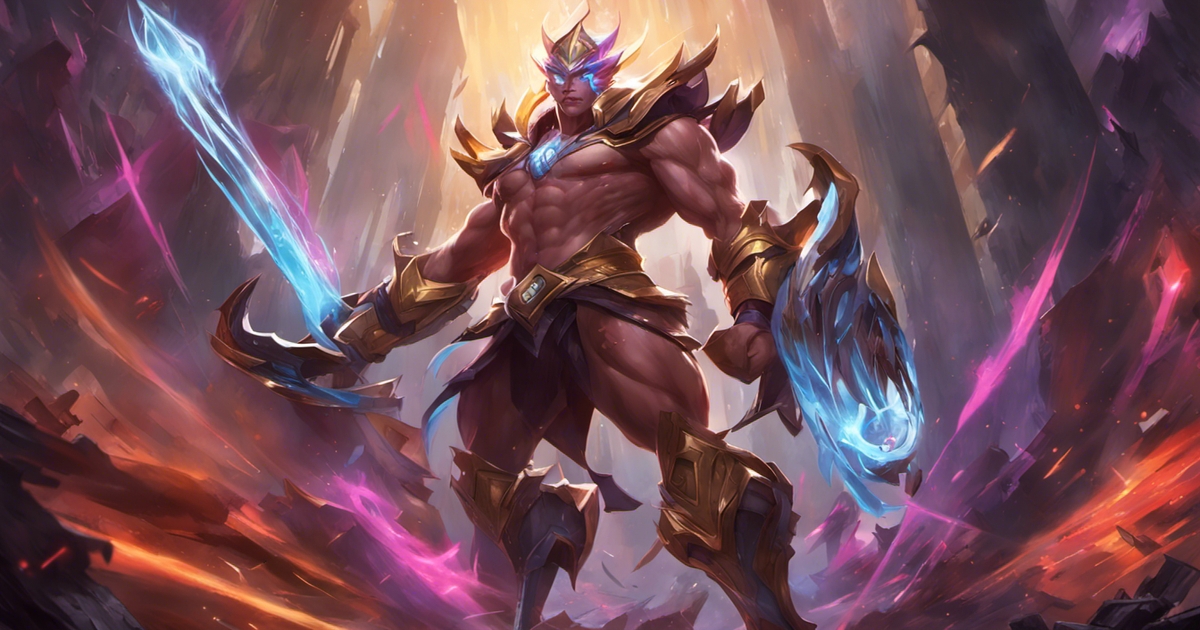What is Esports: Everything You Need To Know

- Definition of Esports
- History and Evolution of Esports
- Growth of Esports
- The Best Esports Teams
- Esports Careers: Going Pro
- Major Players in the Esports Industry
- Understanding the Future of Esports
- FAQs
Esports has evolved into a global phenomenon with a massive fan base. It’s not just about playing video games; it’s competitive gaming at professional levels where players compete in various titles for substantial prize pools. But what exactly is esports? And how did it get so big in such a short time? In this article, we’ll go over everything you should know about esports.
Definition of Esports
Esports, short for electronic sports, refers to organized multiplayer video game competitions. These events involve professional players competing individually or in teams for prizes and recognition. The competitions encompass various genres, including first-person shooters (FPS), multiplayer online battle arenas (MOBAs), and sports games.
Various Genres in Esports
The world of esports encompasses a wide array of game genres, catering to different preferences and skills. From the fast-paced action of first-person shooters like Counter-Strike: Global Offensive to the strategic complexity of MOBAs such as League of Legends and Dota 2, there is a genre for every type of player in the esports landscape. In the realm of esports, professional players showcase their skills either individually or as part of a team. Individual players may compete in games like fighting or racing simulations, while team-based games like Overwatch or Rainbow Six Siege require coordinated teamwork among members competing against other teams.
History and Evolution of Esports
Emerged in Early 1970s
Esports first surfaced in the early 1970s through arcade tournaments. Gamers would gather to compete in games like Space Invaders and Pac-Man, laying the groundwork for what would eventually become a global phenomenon. 
Evolution from Local LAN Parties
The evolution of esports has been remarkable, transitioning from local LAN parties to massive global events. Initially, players would connect their computers over a local network to compete against each other. This grassroots movement laid the foundation for the expansive esports community we see today.
Pioneering Games’ Contribution
Pioneering games such as Space Invaders and Pac-Man played a pivotal role in shaping the growth of esports. These early titles captured the imagination of gamers worldwide and set the stage for competitive gaming as we know it today.
Growth of Esports
The growth of esports has been nothing short of phenomenal. Let’s delve into the surging viewership numbers, mainstream media coverage, and increasing prize pools that have propelled esports into the global spotlight.
Surging Viewership Numbers on Streaming Platforms
Esports has witnessed an explosion in viewership numbers on platforms like Twitch and YouTube.  With millions of fans tuning in to watch their favorite players and teams compete, these platforms have become the go-to destinations for live esports action. The accessibility and interactivity of streaming platforms have contributed to the meteoric rise in esports viewership, allowing fans to engage with content in real-time through chat features and interactive elements.
With millions of fans tuning in to watch their favorite players and teams compete, these platforms have become the go-to destinations for live esports action. The accessibility and interactivity of streaming platforms have contributed to the meteoric rise in esports viewership, allowing fans to engage with content in real-time through chat features and interactive elements.
Expansion into Mainstream Media Coverage and Sponsorships from Major Brands
Esports has transcended niche status, garnering widespread coverage in mainstream media outlets such as ESPN and BBC. Major brands across various industries are recognizing the immense potential of esports as a marketing platform, leading to lucrative sponsorship deals with top teams and events. This expansion into mainstream media and corporate sponsorships has not only elevated the profile of esports but also brought substantial financial investments into the industry.
Increasing Prize Pools for Tournaments, Rivaling Traditional Sports Events
Esports tournaments now offer some seriously big money as prizes. I’m talking millions of dollars! Can you believe that? Games like Dota 2 and Fortnite are leading the way, with their tournaments offering prize pools that can rival those of traditional sports events. This means that top players from all over the world are competing for these huge cash prizes. And it’s not just the players who are getting excited about esports. More and more people are tuning in to watch these tournaments, either in person or online. It’s becoming a big deal for spectators too! This shows that esports is not just a passing fad – it’s a serious business with a lot of potential for growth.
The Best Esports Teams
Several key factors come into play when evaluating the best esports teams:
- Tournament Wins The number of tournament victories serves as a crucial metric for assessing a team’s success. It reflects their ability to perform under pressure and consistently outmatch formidable opponents.
- Skill Level Individual player skill is a fundamental aspect that contributes to a team’s overall performance. Exceptional mechanical skills, game knowledge, and decision-making abilities significantly impact a team’s success in various esports titles.
- Teamwork Synergy Effective communication, coordination, and synergy among teammates are pivotal for achieving victory in esports competitions. Teams with strong interpersonal dynamics often demonstrate superior performances on the global stage.
With all this in mind, here’s the best esports team of all time:
1. Astralis in CS:GO
Astralis has exhibited consistent dominance in the world of Counter-Strike: Global Offensive (CS:GO). Their strategic gameplay, exceptional teamwork, and individual skill levels have propelled them to the top of the esports hierarchy. This Danish powerhouse has secured numerous tournament wins and maintained a remarkable level of synergy among its players. 
2. Team Secret in Dota 2
Team Secret stands out as one of the most successful teams in Dota 2. Their impressive performance is attributed to their exceptional skill level, strategic versatility, and effective teamwork. The team’s ability to adapt to different playstyles and execute complex strategies has consistently placed them at the forefront of competitive Dota 2. 
3. Fnatic in Counter-Strike: Global Offensive and Dota 2
Fnatic has a strong presence in multiple esports titles and have achieved great success over the years.
4. Team Liquid in Dota 2, League of Legends, and StarCraft II
Team Liquid have a strong following and have consistently placed well in major tournaments. 
Esports Careers: Going Pro
Transitioning from casual gaming to becoming a professional esports player involves a lot of hard work and dedication. Aspiring pros spend a significant amount of time practicing and perfecting their skills, focusing on game strategies, and working to improve their reaction times. Many of them follow dedicated practice schedules to enhance their gameplay and stay competitive in the ever-evolving world of esports. Once players reach a certain skill level, they have the opportunity to compete in professional tournaments and leagues, where they can earn substantial prize money and even secure sponsorships from big companies. Coaches also play a vital role in the esports ecosystem, guiding and strategizing with teams to ensure peak performance during competitions. Their expertise helps players refine their skills and tactics, ultimately leading to better results on the virtual battlefield. In addition to players and coaches, there are other career paths within the esports industry. Analysts provide valuable insights by dissecting gameplay data, helping teams refine their tactics for improved performance. Content creators are also in high demand, as they produce engaging esports-related content through streaming, video creation, or social media platforms, keeping fans entertained and informed about the latest developments in the esports world. The demand for skilled professionals extends beyond just players and coaches. Esports organizations are constantly seeking individuals with expertise in marketing, event management, graphic design, and social media management. These roles are essential for the growth and success of esports teams and events, as they help create engaging experiences for fans and attract new audiences to the industry. Overall, the world of esports offers a wide range of career opportunities for individuals with diverse skills and interests. Whether you’re a talented player looking to go pro, a strategic thinker with a passion for coaching, or a creative individual interested in content creation, there’s a place for you in the exciting and rapidly growing world of esports.
Major Players in the Esports Industry
Game Developers/Publishers
Game developers and publishers, such as Riot Games, play a pivotal role in the esports industry. They create and maintain popular titles like League of Legends, which form the foundation for competitive gaming.
Tournament Organizers
Tournament organizers like ESL (Electronic Sports League) are instrumental in hosting major esports events worldwide. They provide platforms for players to showcase their skills and compete at the highest levels.
Streaming Platforms
Streaming platforms like Twitch have revolutionized how esports content is consumed. They offer a space for gamers to broadcast their gameplay, engage with fans, and build communities around their favorite titles.
Investment from Traditional Sports Franchises
The influx of investment from traditional sports franchises, such as NBA teams acquiring esports rosters, illustrates the growing crossover between conventional sports and esports. This trend brings financial stability and mainstream recognition to professional gaming.
Growing Influence of Esports Agencies
Esports agencies are gaining prominence as they represent players’ interests in contract negotiations, brand endorsements, and career management. These agencies help players navigate the complex landscape of professional gaming while ensuring fair treatment and opportunities. The involvement of game developers/publishers is crucial as they create the games that serve as the foundation for esports competitions. Without engaging game content, there would be no esports industry to speak of. Tournament organizers are essential for providing competitive platforms where players can demonstrate their skills and vie for substantial prize pools. Streaming platforms have democratized access to esports content by allowing anyone to watch tournaments or follow their favorite players without any geographical constraints. Traditional sports franchises entering the realm of esports bring with them valuable resources and expertise that can elevate the professionalism and commercial viability of competitive gaming. Esports agencies act as advocates for players’ rights and interests in an increasingly competitive environment, ensuring that athletes receive fair compensation and opportunities beyond just competition.
Understanding the Future of Esports
You’ve now delved into the exciting world of esports, understanding its definition, history, growth, players and teams, rankings, careers, and major industry players. It’s like stepping onto a vibrant digital battlefield where skill and strategy reign supreme. As you’ve seen, esports isn’t just a pastime; it’s a rapidly expanding industry with boundless opportunities for players and enthusiasts alike. Whether you’re an aspiring pro player or simply a passionate fan, there’s so much to explore and be part of in this dynamic realm. So why not dive in? Keep exploring the thrilling universe of esports – who knows what adventures await!
FAQs
What are the key skills needed to excel in esports?
To excel in esports, honing skills such as hand-eye coordination, quick reflexes, strategic thinking, teamwork, adaptability, and decision-making is crucial. These skills are essential for excelling in various competitive games within the esports landscape.
How can one get involved in the esports industry beyond being a player?
Beyond playing professionally, individuals can get involved in the esports industry through roles such as coaching, team management, event organization, broadcasting and commentary, content creation (streaming or video production), marketing and sponsorship management within organizations or game development companies.
What are some popular games in the world of esports?
Popular games in the world of esports include titles like League of Legends (LoL), Dota 2, Counter-Strike: Global Offensive (CS:GO), Overwatch, Fortnite Battle Royale, Call of Duty series among others. These games have established themselves as pillars within the competitive gaming community.
How do professional gamers make money?
Professional gamers make money through tournament winnings/prize pools; sponsorships from gaming gear brands; streaming on platforms like Twitch; content creation on YouTube; endorsements from gaming-related products or services; and salaries from professional teams or organizations.
Are there age restrictions for participating in professional esports competitions?
While age restrictions can vary depending on specific game publishers or tournament organizers’ rulesets (often due to legal reasons), many competitions allow participants as young as 13-16 years old with parental consent. However for certain tournaments with substantial prize pools or international travel requirements may have higher age limits.
Is esports considered sports?
Esports is a rapidly growing industry that has gained widespread recognition and legitimacy in recent years. While traditional sports involve physical exertion and athleticism, esports involves competitive gaming using electronic systems. This has sparked debate over whether esports should be considered a sport. Many argue that the mental and strategic skills required for esports are comparable to those of traditional sports, while others argue that the physical component is essential to defining a sport. Ultimately, the classification of esports as a sport is subjective and varies depending on individual perspectives and the criteria used for defining sports. However, it is clear that esports has established itself as a competitive and organized activity with a dedicated fan base and professional leagues.
